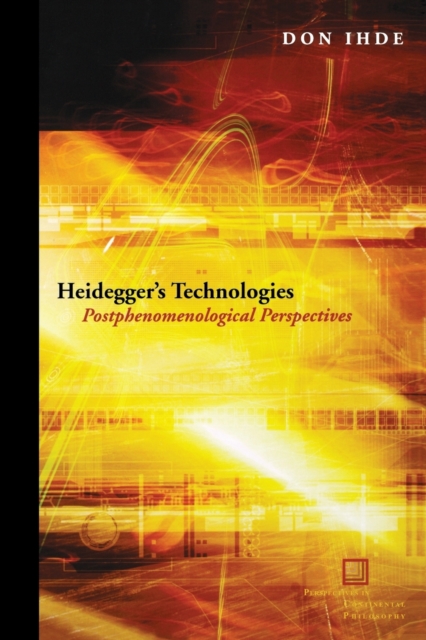
Heidegger's Technologies : Postphenomenological Perspectives Paperback / softback
by Don Ihde
Part of the Perspectives in Continental Philosophy series
Paperback / softback
Description
Heidegger is the only thinker of his generation whose philosophy of technology is still widely read today.
In it, he made three basic claims. First, he asserted that the essence of technology is not technological--that technology is not a neutral instrumentality.
Second, he claimed that there is a qualitative difference between modern and traditional technologies.
Third and most interestingly, he claimed that technology is a metaphysical perspective, a paradigmatic view of the whole of nature.
Although Martin Heidegger remains recognized as a founder of the philosophy of technology, in the last sixty years a whole new world of technologies has appeared—bio-, nano-, info-, and imaging.
With technology, time moves fast. Does philosophical time move, too? How adequate is Heidegger’s thinking now for understanding today’s technological advances?After an extensive Introduction that places Heidegger within the thinking about technology typical of his time, the author, a prominent philosopher of technology, reexamines Heidegger’s positions from multiple perspectives—historical, pragmatic, anti-Romantic and postphenomenological.
His critiques invert Heidegger’s essentialism and phenomenologically analyze Heidegger’s favored and disfavored technologies.
In conclusion, he undertakes a concrete analysis of the technologies Heidegger used to produce his writing and discovers heretofore undiscussed and ironic results.
Overall, the book not only serves as an excellent introduction Heidegger’s philosophy of technology and a corrective in outlining its limitations, it indicates a postphenomenological counter-strategy for technological analysis, one that would look at the production of technology in practice, based on observing its forms of embodied activity.
Information
-
Only a few left - usually despatched within 24 hours
- Format:Paperback / softback
- Pages:176 pages
- Publisher:Fordham University Press
- Publication Date:01/09/2010
- Category:
- ISBN:9780823233779
Other Formats
- Hardback from £73.15
£29.99
£25.89
Information
-
Only a few left - usually despatched within 24 hours
- Format:Paperback / softback
- Pages:176 pages
- Publisher:Fordham University Press
- Publication Date:01/09/2010
- Category:
- ISBN:9780823233779










